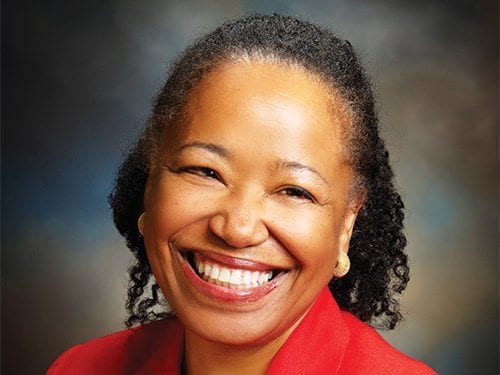
In an effort to address the centuries of racism and structural inequality in the United States, the W.K. Kellogg Foundation has announced its plans to establish Truth, Racial Healing and Transformation, a program that will illuminate the impact of racism throughout society and bring diverse communities together to find solutions.
While inspired by global reconciliation efforts such as South Africa’s Truth and Reconciliation Commission, Gail Christopher, vice president of Truth, Racial Healing and Transformation, said the unique history of the United States necessitated a new approach.
“There’s nothing for us to go back to in America,” she said. “Our country was built on the false premise of a hierarchy of human value. That belief has undergirded most of our human history, and is embedded in our structures — our residential segregation patterns, in our opportunity structures and our immigration patterns.”
Established in 1930, the Kellogg Foundation is one of the largest private charitable foundations in the country, with an endowment of over $8 billion. In the past decade, it has invested more than $200 million into organizations working to promote racial healing and eradicate structural racism.
For its Truth, Racial Healing and Transformation, initiative, the foundation has committed $35 million over seven years.
“For America, we think it’s about truth and racial healing from the harm that has created, and transforming ourselves as a country to where we all believe that people have a right to equal opportunity,” Christopher said.
The formation of the Truth, Racial Healing and Transformation process was informed by polling data research conducted by Jonathan Kaufman, director of Northeastern University’s School of Journalism.
A growing consensus
By aggregating decades of public opinion polls, Kaufman found that now a majority of Americans believe that more needs to be done to eliminate racism. Eighty-six percent of blacks, 70 percent of Latinos and 53 percent of whites say the country needs to make more changes to give blacks equal rights as whites.
These numbers represent a sharp increase in the public’s acknowledgement of racism.
“Things in the country are not great in terms of race relations,” said Kaufman, “but underlying that is a hopefulness that blacks, whites and Latinos want to get together to try to move to a higher ground to find something better.”
One issue that has seen dramatic changes in public opinion is criminal justice.
“Prisons, mass incarceration and African American dealings with the police were the kinds of issues that prompted white backlash in the 1960s,” said Kaufman. “Now the polls show that whites are acknowledging there’s a problem. They feel like many blacks do — that blacks aren’t being treated fairly and something needs to be done.”
One reason for this change, he explained, is the prevalence of cell phone videos showing police violence towards unarmed African Americans. “I think it woke whites up and made them come face to face with the reality that African Americans have been talking about for a long time,” he said.
Another reason, said Kaufman, is President Obama. Through his own advocacy, he has drawn greater attention to issues such as mass incarceration, and in becoming the country’s first black president, he has inspired many Americans to push for racial progress.
“I think that many whites really were very proud that the country elected an African American, even if they disagreed with him politically,” said Kaufman. “And they don’t want to go back to the country we were before that.”
For Christopher, these new trends indicate the country is looking for what the Truth, Racial Healing and Transformation enterprise is hoping to provide.
“For the first time you have, even in the white population, a step beyond denial,” she said. “You have a recognition that there’s a problem. This is a rare moment in history, so we need to do something right now.”
Systems approach
The Kellogg Foundation’s efforts will examine the impact of racism in “all of our systems,” said Christopher, including education, housing, employment, criminal justice and environmental justice. They will also create community-based “healing circles” to bring together diverse groups of people, and assemble national and local commissions to hold public meetings about the consequences of racial inequality.
“Most children born in America today are children of color and most of those children are growing up in low-income or impoverished situations,” said Christopher. “So if you look at the future of our country, it doesn’t bode well if we don’t do something significant to make sure that all people have equal opportunity to succeed.”
The Kellogg Foundation is working with more than 70 partner organizations, including the NAACP, National Urban League, Race Forward, Demos, Common Cause, Color of Change, AFL-CIO Housing Investment Trust, National Council of La Raza, National Congress of American Indians, Arab American National Museum, Asian Americans Advancing Justice and the Northeastern School of Journalism.
While led by the Kellogg Foundation, Christopher said the Truth, Racial Healing and Transformation process will be a “multi-sector initiative” that includes businesses, non-profits and local governments.
Christopher hopes that The Truth, Racial Healing and Transformation process will not only bring people together, but will give the country a metric to measure racial progress.
“In the same way that we have economic indicators such as GDP, we want a set of indicators in overcoming the legacy of racism in this country, and we want our country to see itself as needing to be accountable to that,” she said. “The bottom line is, for the children of this generation and future generations, will their opportunity no longer be defined by their race and ethnicity?”






